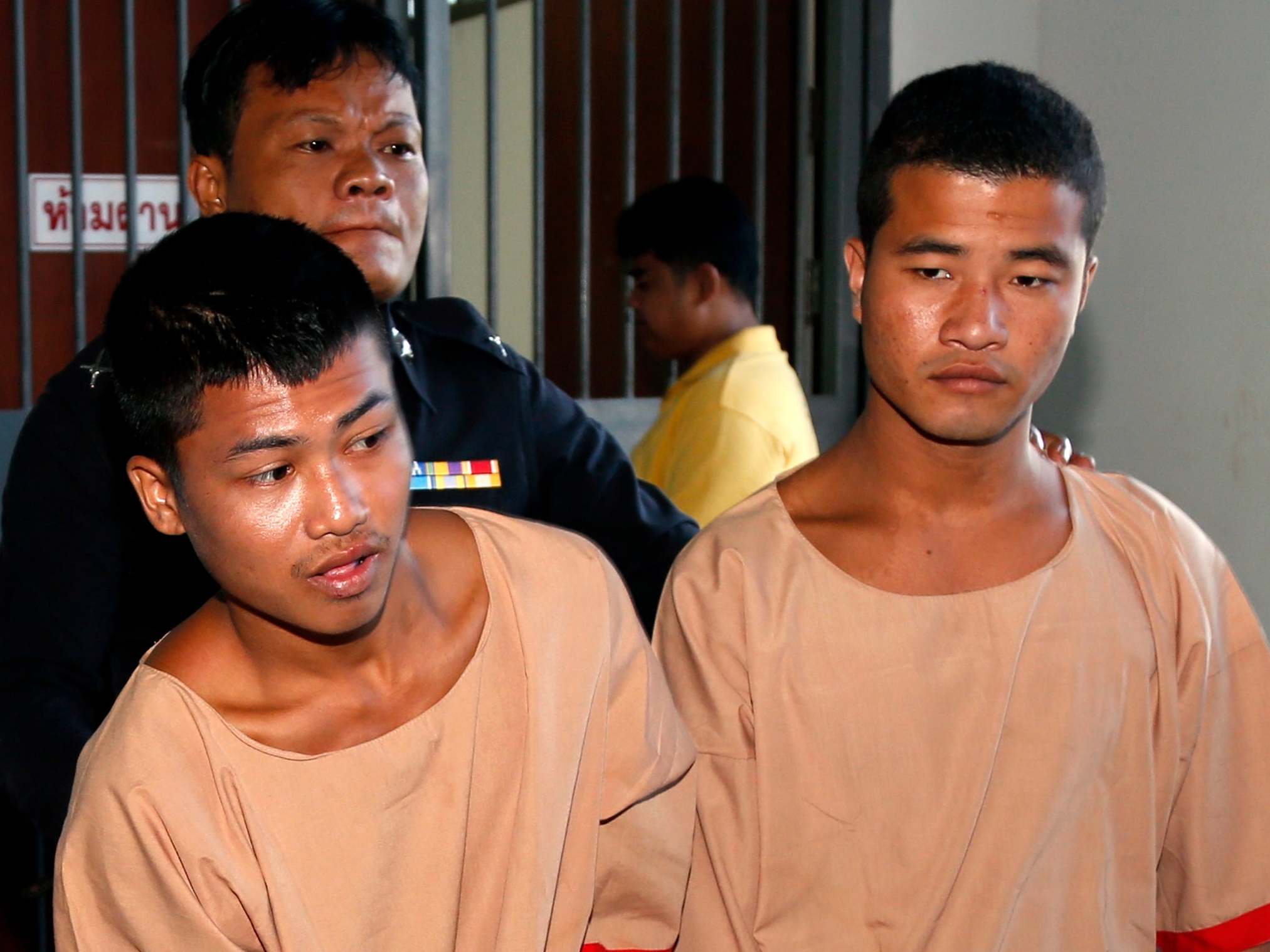Thailand’s king commutes death sentences of men convicted of killing British tourists
King Maha Vajiralongkorn reduces 'thousands' of prison sentences to mark 68th birthday

Your support helps us to tell the story
From reproductive rights to climate change to Big Tech, The Independent is on the ground when the story is developing. Whether it's investigating the financials of Elon Musk's pro-Trump PAC or producing our latest documentary, 'The A Word', which shines a light on the American women fighting for reproductive rights, we know how important it is to parse out the facts from the messaging.
At such a critical moment in US history, we need reporters on the ground. Your donation allows us to keep sending journalists to speak to both sides of the story.
The Independent is trusted by Americans across the entire political spectrum. And unlike many other quality news outlets, we choose not to lock Americans out of our reporting and analysis with paywalls. We believe quality journalism should be available to everyone, paid for by those who can afford it.
Your support makes all the difference.Two men who were convicted of killing two young British tourists on a Thai holiday island have had their death sentences commuted to life imprisonment by Thailand’s king.
Zaw Lin and Wai Phyo, two migrant workers from Myanmar, were among the convicts whose sentences were reduced under a clemency decree issued by King Maha Vajiralongkorn to mark his 68th birthday on 28 July, according to the men’s lawyer.
The decree, which appeared to cover thousands of prisoners, took effect on Friday with its publication in the country's Royal Gazette.
Lin and Phyo have denied killing David Miller, a 24-year-old from Jersey, and Hannah Witheridge, a 23-year-old from Norfolk, in 2014 after the battered bodies of the British tourists were found on a beach on the popular tourist island of Koh Tao in the Gulf of Thailand.
The 2014 killings caused extensive controversy in Thailand due to allegations that police mishandled evidence and beat the suspects into making confessions.
A well-known Thai forensics expert testified that DNA evidence which was central in the prosecution case did not link the two men to the scene, while Human Rights Watch called the guilty verdict “profoundly disturbing”.
There were suspicions that the men had been scapegoated as police were under pressure to solve the case due to its potential adverse effect on Thailand's tourism industry.
“I can’t find words to express how thankful we are,” Ye Zaw Tun, a brother of Phyo (who is also called Win Zaw Tun), told AFP on Saturday.
“We knew this case was totally unfair, and we sometimes feel bitterness, but we want to say thanks for the royal pardon.”
A commutation had become the two men’s last hope following a ruling by Thailand's Supreme Court in August last year which upheld their murder convictions and sentences.
The court dismissed allegations of physical mistreatment and mishandling of forensic evidence in the case, arguing that the forensic work had been handled by respectable institutions and there had been no proof of torture.
Additional reporting by AP
Join our commenting forum
Join thought-provoking conversations, follow other Independent readers and see their replies
Comments